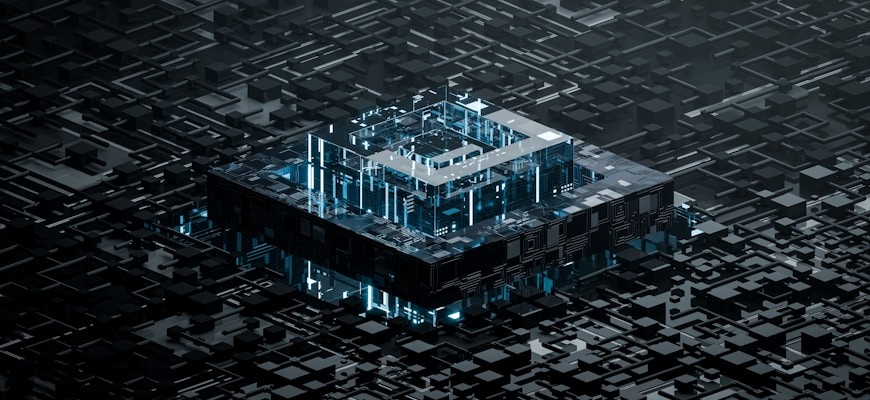- Transforming Real Estate: How AI is Shaping Property Tokenization
- Decentralizing Ownership: The Impact of Artificial Intelligence on Real Estate
- From Traditional to Digital: The AI-Driven Tokenization of Property
- Unlocking Opportunities: The Benefits of AI in Property Ownership Tokenization
- Navigating the Future: AI’s Role in the Evolution of Property Investment
- Smart Contracts and Tokenization: AI’s Influence on Property Transactions
Transforming Real Estate: How AI is Shaping Property Tokenization
The rise of artificial intelligence (AI) is significantly transforming the landscape of real estate, particularly in the realm of property tokenization. By leveraging AI technologies, the process of tokenizing real estate assets introduces a more efficient, transparent, and accessible method for property ownership. Property tokenization enables fractional ownership, allowing investors to purchase a share of a property rather than the entire asset, thus democratizing access to real estate investments.
AI plays a crucial role in this transformation by enhancing the valuation and assessment processes. Machine learning algorithms analyze vast amounts of data, including historical price trends, market conditions, and property characteristics. This data-driven approach provides more accurate valuations, ensuring that tokenized properties are fairly priced and appealing to potential investors.
- Improved valuations through machine learning
- Enhanced fraud detection in transactions
- Streamlined property management and maintenance
- Increased transparency in ownership records
Furthermore, AI facilitates the creation of smart contracts, which automate various processes involved in property transactions. These contracts eliminate the need for intermediaries, reducing costs and speeding up the transaction process. The integration of AI in smart contracts ensures that all parties involved adhere to the terms agreed upon, thus fostering trust and security in property tokenization.
As property tokenization continues to evolve, the influence of artificial intelligence will only grow stronger. By providing analytical insights, improving efficiency, and enhancing security, AI is reshaping the future of real estate ownership. The synergy between AI and property tokenization not only benefits investors but also contributes to a more dynamic and inclusive real estate market.
Decentralizing Ownership: The Impact of Artificial Intelligence on Real Estate
The integration of artificial intelligence into the real estate sector is significantly transforming property ownership. One of the most profound effects of AI is the decentralization of ownership through the tokenization of real estate assets. This innovative approach allows for the division of property into digital tokens, making investments more accessible and efficient.
Tokenization, fueled by AI technologies, enables fractional ownership, where investors can purchase a portion of a property rather than the whole asset. This method democratizes real estate investments, allowing a broader range of individuals to participate in the market. As a result, smaller investors can now access high-value properties that were previously out of reach.
- Enhanced liquidity: Tokenization allows for quicker and easier transactions, leading to increased liquidity in the real estate market.
- Reduced barriers: By lowering the financial threshold for investment, more people can enter the real estate market.
- Transparent transactions: AI ensures that all transactions are recorded immutably on the blockchain, providing transparency and security.
- Smart contracts: The use of AI-powered smart contracts automates processes, reducing the need for intermediaries and minimizing costs.
The impact of AI on the real estate market extends beyond just ownership structures. The technology facilitates sophisticated data analysis, enabling more informed investment decisions. By leveraging AI algorithms, investors can assess property values, rental yields, and market trends with unprecedented accuracy.
Furthermore, AI enhances the management of tokenized properties. Automated platforms can optimize rental processes, tenant screenings, and maintenance requests, ensuring a seamless experience for both investors and tenants. This operational efficiency contributes to a more attractive investment environment, ultimately driving interest in tokenized real estate.
In summary, the role of artificial intelligence in the tokenization of real estate is revolutionizing property ownership. Through decentralization and the introduction of new technologies, AI is reshaping how individuals engage with real estate investments, fostering a more inclusive and efficient market.
From Traditional to Digital: The AI-Driven Tokenization of Property
The transition from traditional property ownership to digital asset management marks a significant shift in the real estate landscape. With the advent of artificial intelligence (AI), the tokenization of property has become a transformative process that enhances accessibility and liquidity. Tokenization involves converting physical assets into digital tokens that can be easily traded on blockchain platforms, making real estate investments more inclusive.
AI plays a crucial role in streamlining this tokenization process. By leveraging machine learning algorithms, property evaluations can be conducted more accurately, ensuring that the value of real estate assets is fairly represented in the digital realm. This enhanced valuation process minimizes risks for investors and increases trust in the market.
- Increased Liquidity: Tokenization allows property owners to break down their assets into smaller, tradable units, leading to improved liquidity in the real estate market.
- Global Access: Digital tokens can be accessed by investors worldwide, expanding the potential buyer base and democratizing property ownership.
- Enhanced Security: The use of blockchain technology ensures that ownership records are secure, transparent, and immutable, reducing the risk of fraud.
- Lower Transaction Costs: By automating the transaction process through smart contracts, AI reduces the need for intermediaries, thereby lowering costs associated with property transactions.
Furthermore, AI-driven analytics provide insights into market trends and consumer behavior, allowing investors to make informed decisions. This data-driven approach facilitates better forecasting and strategy development, ultimately leading to a more robust investment portfolio.
In conclusion, the integration of AI in the tokenization of property represents a revolutionary change in how real estate is owned and traded. By combining technology with traditional property assets, a new paradigm of property ownership emerges, offering unprecedented opportunities for investors and enhancing the overall efficiency of the real estate market.
Unlocking Opportunities: The Benefits of AI in Property Ownership Tokenization
Artificial Intelligence (AI) is transforming the landscape of property ownership through the innovative process of tokenization. By leveraging AI, property ownership tokenization becomes more efficient, accessible, and secure. This technology is revolutionizing how individuals and investors engage with real estate assets.
- Enhanced Accessibility: AI simplifies the tokenization of properties, enabling a broader audience to invest in real estate markets. With fractional ownership, individuals can participate without needing substantial capital, thus democratizing property investment.
- Improved Security: AI algorithms enhance the security of tokenized property transactions. By utilizing smart contracts and blockchain technology, the risk of fraud is minimized, ensuring that ownership rights are protected and verifiable.
- Data-Driven Insights: AI analyzes vast amounts of data to provide insights into property values, market trends, and investment opportunities. Investors can make informed decisions based on predictive analytics, optimizing their investment strategies in the tokenized real estate market.
- Streamlined Processes: The integration of AI in property ownership tokenization automates various processes, such as due diligence and compliance checks. This efficiency reduces transaction times and costs, making property investment more attractive.
- Enhanced Liquidity: Tokenization increases the liquidity of real estate assets. By converting properties into tradable tokens, investors can easily buy or sell their shares, making real estate investments as fluid as stocks or bonds.
Incorporating AI into property ownership tokenization not only enhances the experience for investors but also fosters a more inclusive and efficient real estate market. As the adoption of these technologies grows, the potential for innovation in property ownership will continue to expand, unlocking new opportunities for all stakeholders involved.
Navigating the Future: AI’s Role in the Evolution of Property Investment
The integration of artificial intelligence (AI) into property investment is reshaping the landscape of real estate ownership. As property investment continues to evolve, AI plays a crucial role in facilitating smarter, more efficient decision-making processes. By leveraging advanced algorithms and data analytics, AI enhances the ability of investors to identify lucrative opportunities in the real estate market.
One of the most significant impacts of AI on property investment is its capability to analyze vast amounts of data. This includes market trends, property values, and consumer behavior, which helps investors make informed decisions. AI can predict market fluctuations, enabling property owners to time their investments for maximum returns. Additionally, AI-driven tools offer predictive analytics, which can forecast future property performance based on historical data.
- Enhanced Due Diligence: AI streamlines the due diligence process by quickly analyzing property documents and market conditions, reducing the time and effort required for thorough assessments.
- Risk Assessment: AI algorithms assess risks associated with various properties, helping investors avoid potential pitfalls and make safer investment choices.
- Market Insights: AI provides invaluable insights into emerging markets and trends, allowing property investors to stay ahead of the curve.
- Personalized Investment Strategies: AI can tailor investment strategies based on individual preferences and financial goals, maximizing the potential for success.
Moreover, AI facilitates the tokenization of real estate assets, creating a new paradigm in property ownership. By converting physical assets into digital tokens, AI allows for fractional ownership, making real estate investment more accessible to a broader audience. This innovation not only democratizes property ownership but also increases liquidity in the real estate market.
As AI technology continues to advance, its influence on property investment will likely grow, offering innovative solutions that enhance the overall investment experience. The future of property ownership is being shaped by AI, paving the way for a more efficient, transparent, and profitable real estate market.
Smart Contracts and Tokenization: AI’s Influence on Property Transactions
The emergence of artificial intelligence (AI) has significantly transformed various sectors, with property transactions being no exception. One of the most notable advancements facilitated by AI is the implementation of smart contracts and tokenization, creating a streamlined approach to property ownership. Smart contracts operate on blockchain technology, ensuring secure, transparent, and automated transactions that minimize the need for intermediaries.
Tokenization plays a pivotal role in redefining property ownership by converting physical assets into digital tokens. These tokens represent ownership stakes in real estate, making it easier for individuals to invest in properties with lower entry barriers. AI enhances this process through data analysis and predictive modeling, which help in assessing property values and investment risks.
- Smart Contracts: These self-executing contracts automatically enforce the terms of an agreement when predefined conditions are met, reducing the risk of fraud and human error.
- Tokenization Benefits: By dividing real estate into smaller, tradable tokens, tokenization allows for fractional ownership, opening up investment opportunities for a broader audience.
- AI-Driven Insights: Leveraging AI algorithms, stakeholders can gain insights into market trends, enhancing decision-making processes in property transactions.
- Efficiency and Speed: The integration of smart contracts accelerates closing times, enabling quicker transactions while maintaining transparency throughout the process.
Moreover, the combination of AI and tokenization addresses several challenges traditionally faced in real estate. Issues such as lengthy paperwork, high transaction costs, and the complexity of ownership structures are significantly mitigated. As the real estate industry continues to evolve, the influence of AI on smart contracts and tokenization will likely become more pronounced, fostering a more accessible and efficient property market.
In conclusion, the intersection of artificial intelligence, smart contracts, and tokenization is paving the way for a new era in property transactions. By leveraging these technologies, stakeholders can enhance the security, efficiency, and accessibility of real estate investments, ultimately revolutionizing property ownership.









